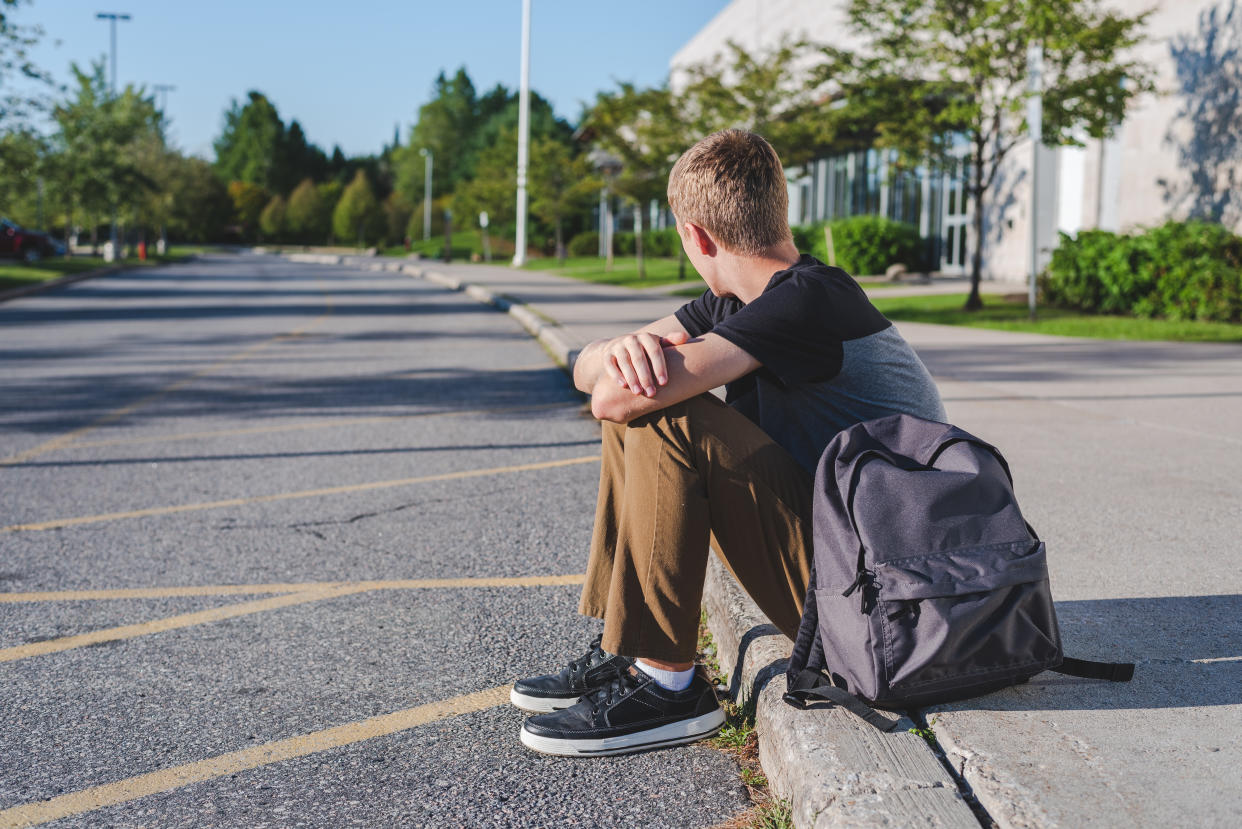Schools nationwide are offering mental health days to address growing issues among teens

Members of Generation Z have already proven themselves to be powerful agents of change, willing to fight for everything from gun legislation to climate change. So it’s perhaps no surprise that their latest endeavor, to enact mental health days in schools nationwide, is taking off.
This week Florida became the newest state to address this issue with House Bill 315, legislation that would allow (but not require) Florida schools to offer students “one mental health day for each semester as an excused absence.” Florida State Representative Susan Valdes (D-Tampa), the lead sponsor on the bill, told the Tallahassee Democrat that her bill is aimed at combating stigma and alleviating the stress that students face today. “In the age of social media, the Internet, and constant bombardment of negative news and events, our children are bearing the brunt of a quickly-changing society,” Valdes told the local paper. “It is time for us to take mental health as a whole more seriously.”
Florida’s measure — if passed — would take effect next year, but is just one of several that have been introduced nationwide. In 2018, Utah was the first state to enact legislation on the topic, by expanding the definition of “sick” to include mental health issues. Then, in July, teen activists in Oregon worked to pass a bill that allows students to take as many as five mental health days over a three-month period in the state. Other states, like Virginia, have passed limited measures in certain school districts, while others, like New York, are working on proposals.
The laws, which have largely been applauded on social media, come on the heels of a June report from the Journal of the American Medical Association that found suicide levels among young adults to be at the highest levels since 2000. An October report from the Centers for Disease Control and Prevention presented even more troubling statistics, noting a 56 percent increase in suicides among people aged 10 to 17 between 2007 and 2017. Now the second leading cause of death in that age group, suicide has often been linked to anxiety and depression — two conditions that teens also face in high numbers. In a February poll from the Pew Research Center, 70 percent of teens said they view anxiety and depression as a major problem among people their age (the highest percentage of any issue they face).
Jennifer Rothman, senior manager of youth and young adult initiatives at the National Alliance on Mental Illness, says it’s this awareness among teens that is fueling the change nationwide. “We're really seeing young people stand up and advocate for this,” Rothman tells Yahoo Lifestyle. “When the people being affected are the ones standing up, lawmakers and school personnel notice. This is an ongoing issue and it's not getting better, it's getting worse.”
Rothman, who coordinates a presentation on mental health for schools, titled “Ending the Silence,” says the ability to take a sick day when suffering from anxiety or depression isn’t just helpful — it’s healing. “It allows [students] to speak up and say ‘I need a mental health day, I'm not feeling well.’ It starts the conversation,” she says. “If a family wasn't aware their child had issues with their mental health, this can really spark some conversations about maybe finding treatment and getting help.” NAMI has also created a new online resource for parents, a free, six-session education guide.
But beyond opening up dialogue with loved ones, Rothman thinks the laws are a powerful sign of progress in the education world. “Schools are showing that they're supporting their students, they recognize this is an issue and they want to address it,” she tells Yahoo Lifestyle. “All of this works together against the stigma because people are so ashamed, but in reality, there is nothing to be ashamed of. We all need mental health days.”
If you or someone you know needs help, please call the National Suicide Prevention Lifeline at 1-800-273-TALK (8255).
Read more from Yahoo Lifestyle:
Singer Sulli's death prompts questions about pressures of K-pop fame
Lay's Grilled Cheese and Tomato Soup potato chips will make fall snacking even cozier
Follow us on Instagram, Facebook, Twitter and Pinterest for nonstop inspiration delivered fresh to your feed, every day.

